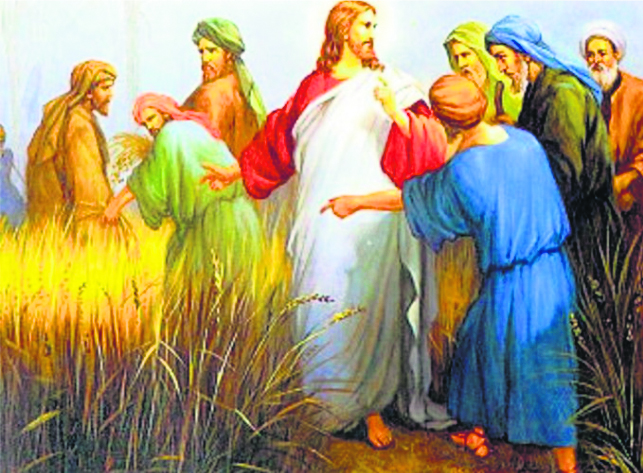The field didn’t resemble what either the farmer or his aides had imagined. Along with the flowering of wheat stems, the field was filled with weeds, a sore, unseemly sight that dismayed the aides. One of them wondered why it happened since they had sown high-quality seeds. The farmer remained unperturbed. He explained how one of his enemies had sown weeds at night while they were asleep.
When one of the aides advocated pulling out the weeds, the farmer advised against it and asked them to wait. ‘Why?’ they wondered. The farmer explained: ’When you pull the weeds out, you’re bound to uproot the wheat with them. The best option is to let them grow until it’s harvest time. Once they’re harvested, we can collect the weeds together and burn them while keeping the wheat.’
Jesus explained his parable thus: ‘The one who sowed the good seed is the son of man. The field is the world, and the good seed stands for the people of the kingdom. The weeds are the people of the evil one, and the enemy who sows them is the devil. Harvest is the end of the age, and the harvesters are angels.’
Jesus’s words resonate even now, especially deep within us. Diving into our psyche will showcase this scenario being enacted. The weeds are our negativities that we ourselves sow, either unknowingly or at times with hideous intent, along with the wheat, which are positive traits we develop. Since both co-exist, they’re intricately entwined. Working on them prematurely might have an adverse effect on the positive traits too. Sometimes a seemingly negative trait eventually becomes a positive one. Say, for example, that simple jealousy could transform into what we may refer as ‘aspiration’ or ‘emulation’ (wheat)that urges us to strive harder to reach a higher pedestal instead of becoming ‘spiteful envy’ (weed). The wait until the time of harvest is to be meditative, not merely through posturing but by observing ourselves intently.
May we delve deeper into ourselves, become keen observers, and honestly identify the rights from the wrongs. Then we’ll eventually realise and own up to being the cause. With realisation dawning upon us, the weeds (read, our negativities) burn, while wheat (positive traits) helps nourish us spiritually. Without this acknowledgment, redemption isn’t possible.Finally, harvest time is reinforcement of the core values, or, in other words, becoming one with our divine nature.









